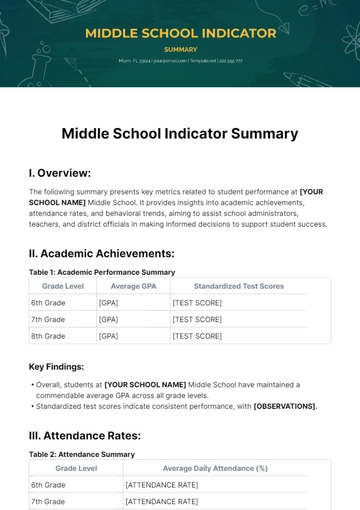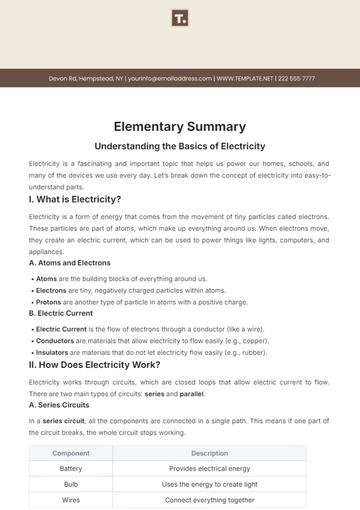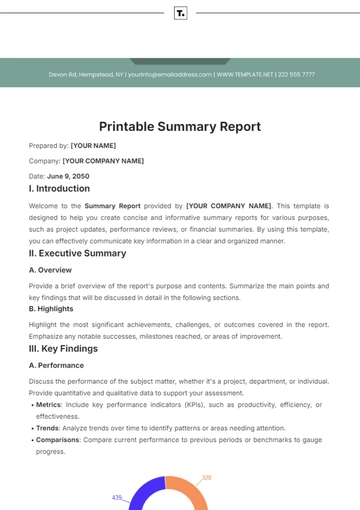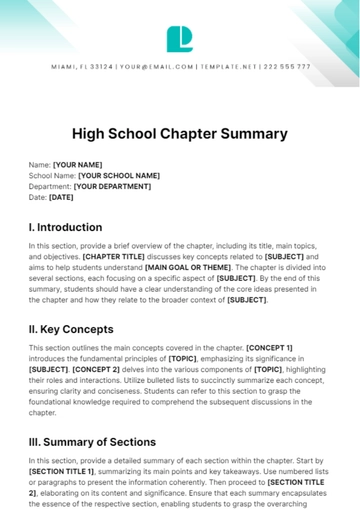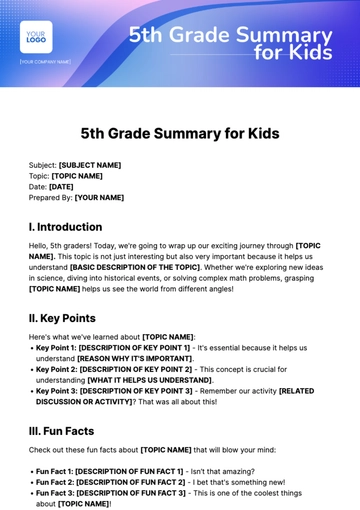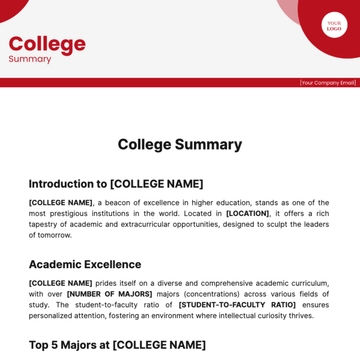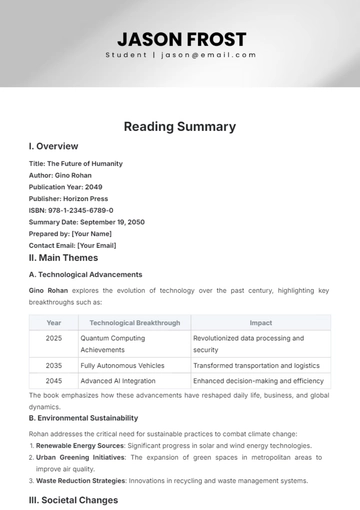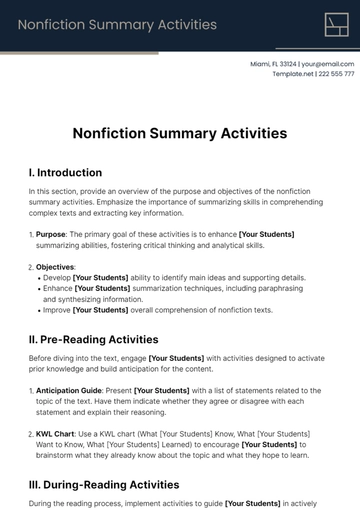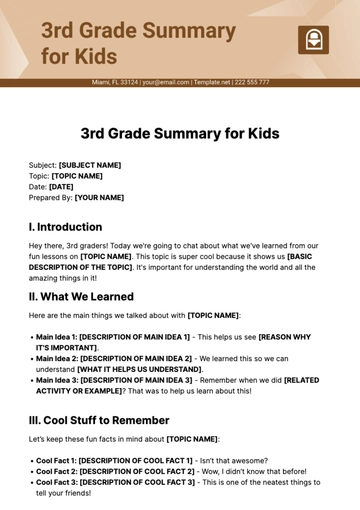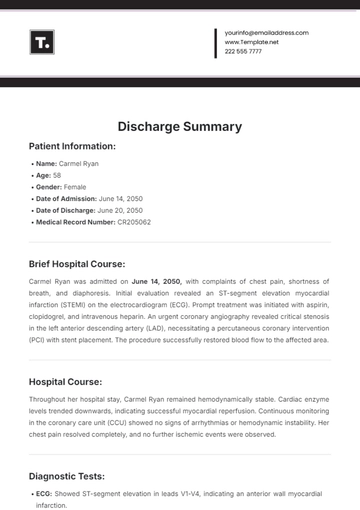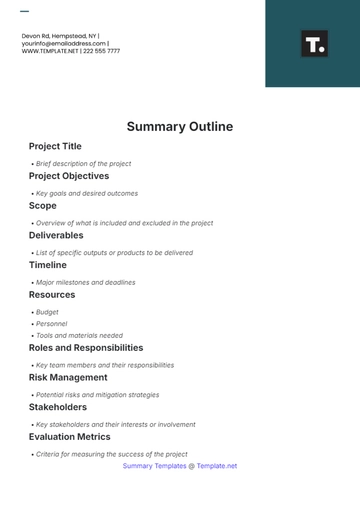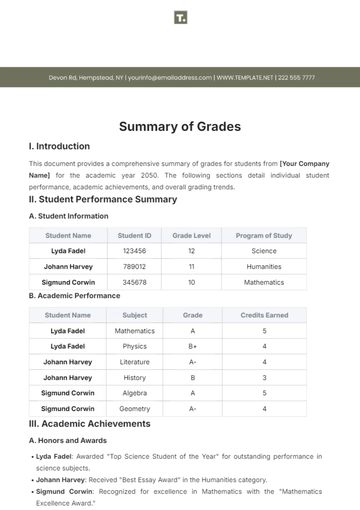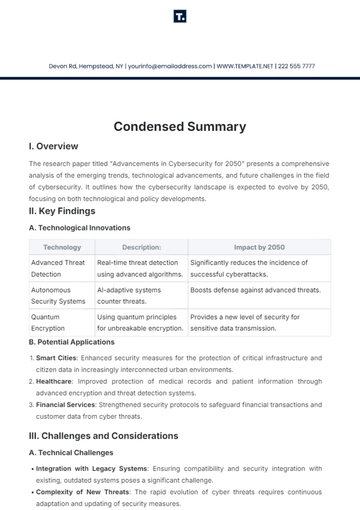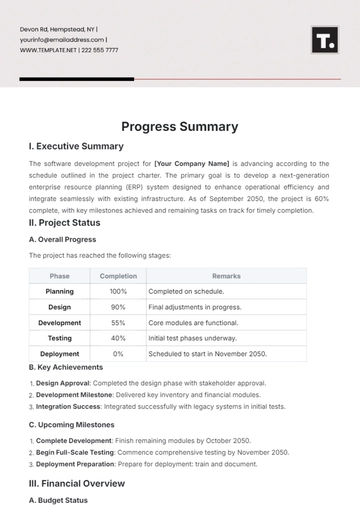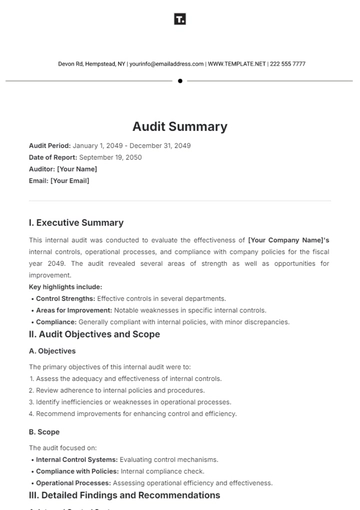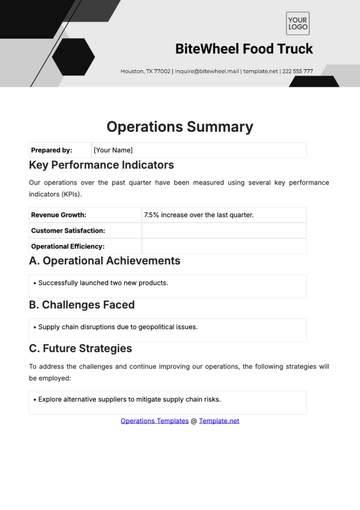Free Journal Article Summary

Prepared By: [YOUR NAME]
Date: [DATE]
I. Introduction
This study explores the relationship between sleep quality and academic performance among university students. As sleep is a critical factor in cognitive functioning and overall well-being, the research aims to determine whether variations in sleep quality positively or negatively affect students' academic achievements.

II. Methods
The study employed a quantitative approach, utilizing surveys to collect data from 600 university students. The survey assessed their sleep patterns, duration, and quality, along with their academic performance indicators such as GPA and exam results.
III. Results
The findings reveal that students who consistently experience high-quality sleep tend to have better academic performance, including higher GPAs and more effective exam preparation. In contrast, poor sleep quality, characterized by irregular sleep patterns and insufficient sleep duration, is associated with lower academic achievements and decreased concentration during study sessions.
IV. Discussion
The study suggests that sleep quality is a significant predictor of academic success. It highlights the importance of maintaining regular sleep patterns and achieving adequate rest to optimize cognitive function and learning capabilities. The research adds to the growing body of evidence on the impact of lifestyle factors on academic performance and offers insights into how students can improve their academic outcomes by prioritizing sleep.
V. Conclusion
In conclusion, the study emphasizes the dual role of sleep quality in academic performance, noting that both the duration and consistency of sleep are crucial. It recommends that educational institutions and health professionals promote sleep hygiene education among students. Future research could further explore the long-term academic benefits of improved sleep quality and the potential interventions to help students achieve better sleep.
Journal Article @ Template.net
- 100% Customizable, free editor
- Access 1 Million+ Templates, photo’s & graphics
- Download or share as a template
- Click and replace photos, graphics, text, backgrounds
- Resize, crop, AI write & more
- Access advanced editor
Introducing the Journal Article Summary Template from Template.net! Crafted for efficiency, it's fully editable and customizable to suit your needs. With seamless integration into our Ai Editor Tool, dissect and summarize scholarly works effortlessly. Streamline your research process today with this essential tool for academics and professionals alike
